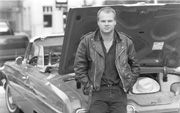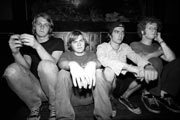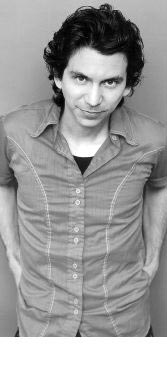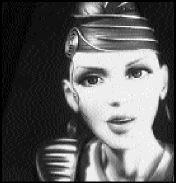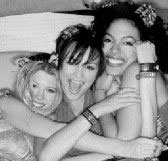FRED EAGLESMITH’S WORLD is one where pop culture gets roughly the same respect as a bottle of Zima in a heavy metal club. The land where Eaglesmith, a self-proclaimed freak with an insatiable appetite for devilish country songs and the wild, big-haired women who love them, hails from has no need for Battlebots, teen pop vixens, or citrus-flavored malt liquor. Eaglesmith comes from a self-contained land with a belief system he both exalts and bad-mouths: Canada.
Fred Eaglesmith
Tractor Tavern, Saturday, December 2
When Eaglesmith isn’t on the road—which only leaves him about 100 days out of the year—he lives in a small fishing village in southern Ontario. Since he was 13 years old, he’s been dedicated to cataloging his hometown’s 2,000 and some-odd residents in a lively, if not especially flattering, volume of country songs. Sometimes his absurdly loyal fans thank him by crying, but more often than not, they want to take him to task for being so, well, American.
“I think Canadians are the most bigoted people,” the tar-voiced Eaglesmith says from a pay phone somewhere outside Gainesville, Fla. “I go home and I fight for the American cause all the time, just because they think you guys are crazy people with cowboy hats and Winnebagos.”
It doesn’t help that a few years back, Eaglesmith penned the decidedly un-Canadian anthem “Time to Get a Gun,” a fabulous snapping-of-the-synapses ditty that became a frequently requested tune during last year’s World Trade Organization riots in Seattle. The chorus, led by Fred’s embracing yelp, included the jubilant couplet “Time to get a gun/That’s what I’ve been thinkin’/I could afford one/If I did just a little less drinking.”
Needless to say, Eaglesmith caught hell for the song north of the border, where packing heat isn’t exactly the number one item on everyone’s grocery list. “I just went over that line—everybody does sometimes,” he offers in the way of explanation. “I thought it was a real legitimate song . . . it really happened. My neighbor’s car got stolen, and my wife at the time was thinking she would have to lock the doors all the time. I thought maybe I should get a gun; that’s just how you feel some days.”
THREE YEARS LATER, Eaglesmith is still funneling that unapologetic raw energy into his steel-dipped songs. He is a living paean to performing random acts of truthfulness rather than kindness. Every day, he’s sure what he wants from life: He works on his book of short stories on the tour bus (“I just can’t see touring for the rest of my life at this intensity, so it’d be good to have something else going on,” he says), plays solid sets to loyal fans who sometimes drive thousands of miles to see him, and is absolutely certain he is one of the happiest adults he knows.
“It doesn’t really get much better than this,” Eaglesmith says. “That’s what I always think, how lucky I am, every day . . . I keep going, you know? And going and going. There are days where I think I can’t do it anymore, but I always do and it’s good. It’s my lifestyle, it’s how I live.”
Fred’s is a world where juke joints and bored farm boys live in harmony, one where the buzz of the 9-to-5 life is forsaken for “rifles in the morning” and a gorgeous sunset on the lost highway. His last album, 1999’s 50-Odd Dollars (Razor & Tie), stomps through ballads about potential barroom brides not quite quirky enough to make his heart palpitate (“Crazier”) and a howling mix of up-tempo rockers peppered with Eaglesmith’s will to not only survive, but succeed, in a small town life that would leave most city-slicker Nashville crooners weeping in their overpriced satin suits.
“I think country music right now is a cartoon,” Eaglesmith says. “This country music I’ve been playing, it’s fun. That other stuff [new country] is really pop music, and that’s OK—they can do that if they want. That sort of music sort of reminds me of what American politics is about: ‘We’re pretending to be sincere, but everybody knows we’re not.'”
Somehow, this salt-of-the-earth type has found a way to bring his frozen landscape and broken-down cars to a hungry audience. An Eaglesmith show is somewhere between stand-up comedy and country that’s so poignant it leaves your heart feeling like an ashtray. Eaglesmith’s band, a fascinating batch of old-timers and young guns—including armor-coated percussionist Washboard Hank, Willie P. Bennett on mandolin, steel guitarist Roger Marin, drummer Kevin Komatsu, and bassist Darcy Yates—drive an already obsessive group of fans into a grinning throng. The last time he played the Tractor Tavern, three encores seemed skimpy.
“I never know what people see in me,” Eaglesmith muses, “but I’m not gonna argue with it. If I was a real marketing guy, I’d get an analyst in to examine how I could best get at them or something. But I just don’t live in that world.” That, friends, is pure country.
